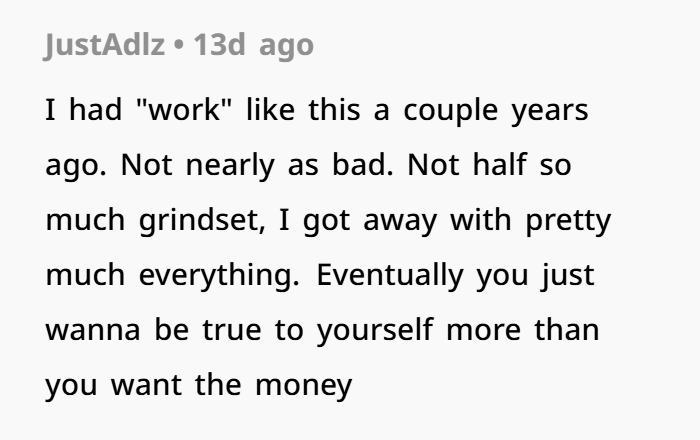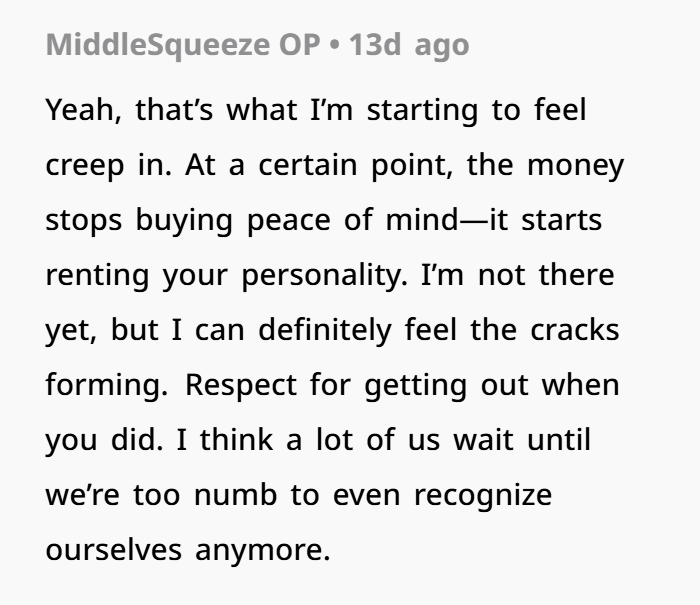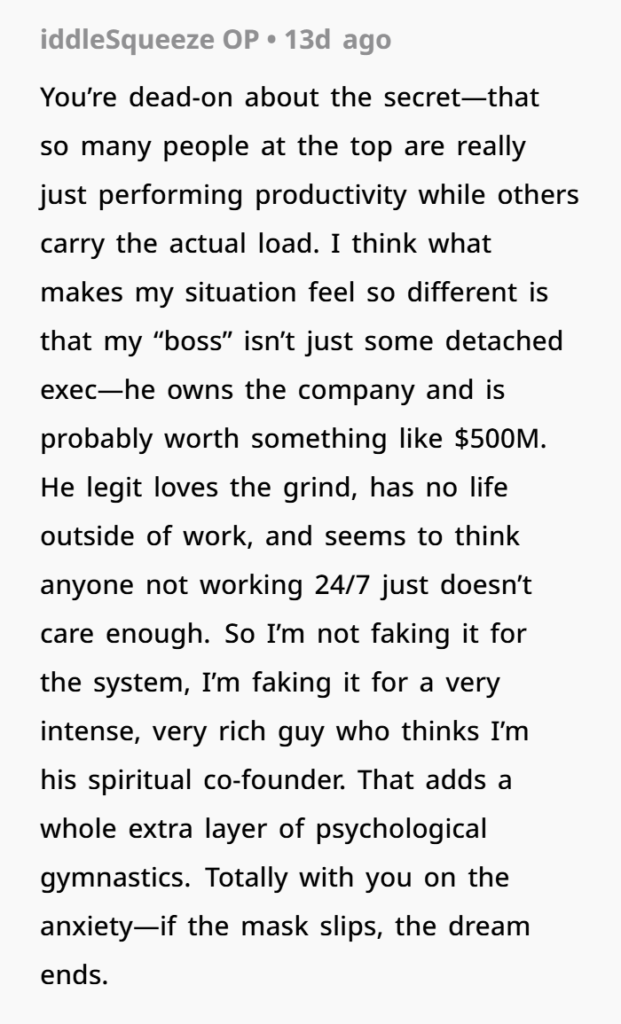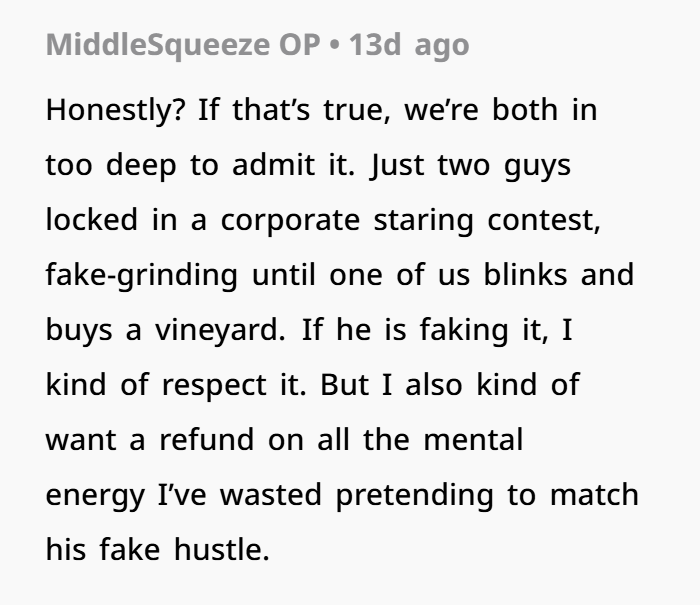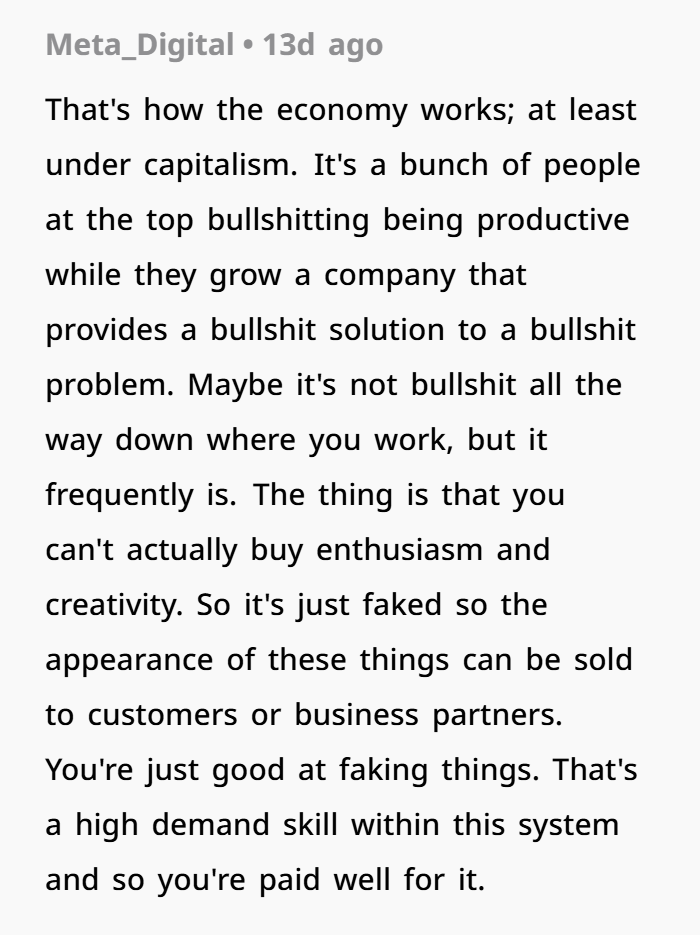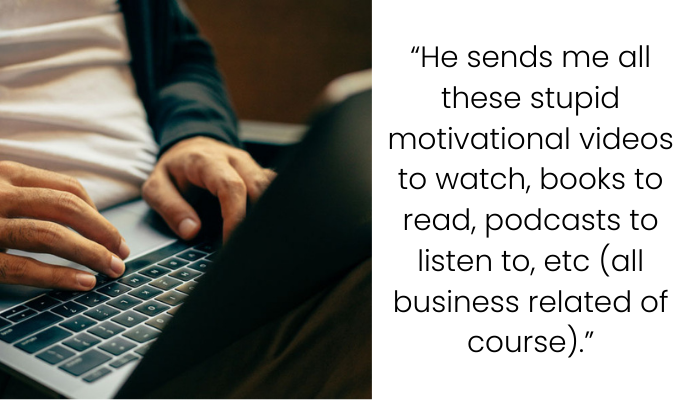The Emotional Cost of High Salaries: Faking Enthusiasm for a Billionaire Boss While Slowly Losing Myself
In the pursuit of financial success, many professionals find themselves trapped in roles where their actual contributions are dwarfed by the need for constant emotional performance. This story captures a stark reality: an employee earning life-changing income while dedicating most of their energy not to productivity, but to maintaining the illusion of passion and loyalty. The protagonist’s job demands a near-constant performance—scheduling late-night emails, faking early morning productivity, and mirroring a highly demanding boss’s relentless work ethic.
The boss, a $500 million net-worth entrepreneur, epitomizes the toxic “hustle culture” mentality, believing that true commitment means living and breathing work around the clock. While the narrator masters the art of emotional mimicry to survive, the toll is steep: chronic anxiety, emotional exhaustion, and a creeping sense of guilt. It’s a haunting look into the psychological warfare required to survive in toxic, high-performance environments, raising the question: at what point does a paycheck stop being worth the personal cost?
To the untrained eye, it would seem that this employee is constantly working and is super dedicated to their job

But it’s all a fake show, and they’ve confessed to “pretending to care” while actually only working about 5 hours a week
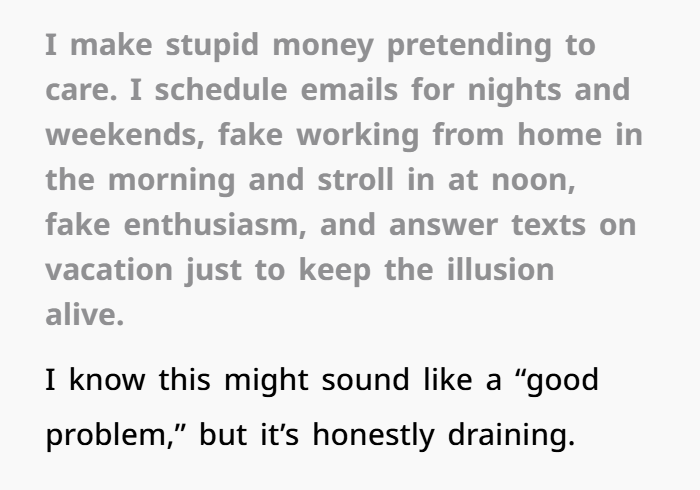
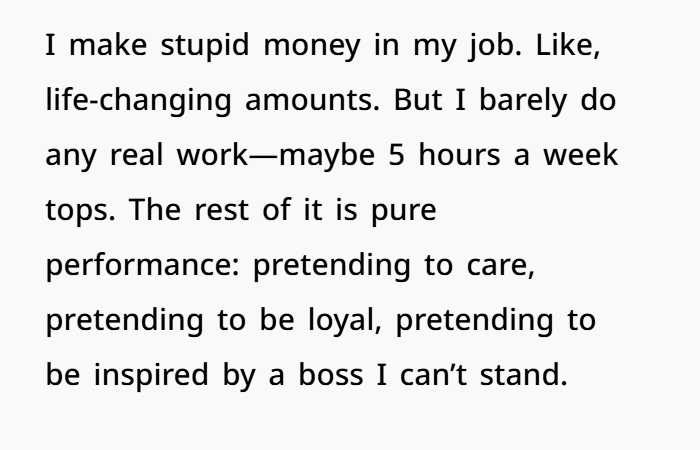
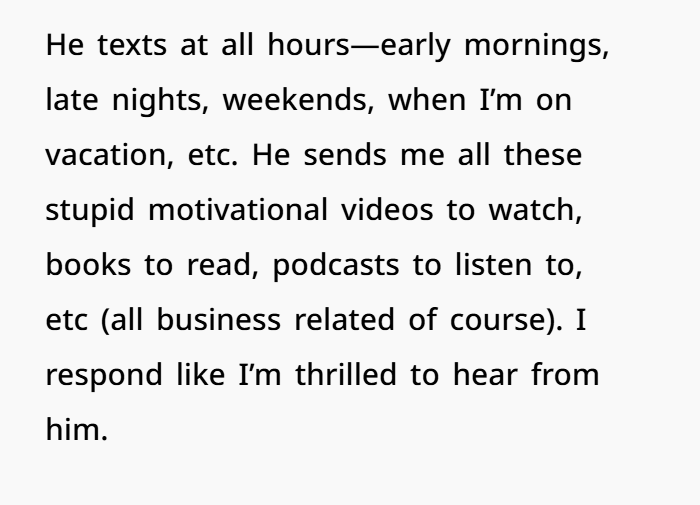
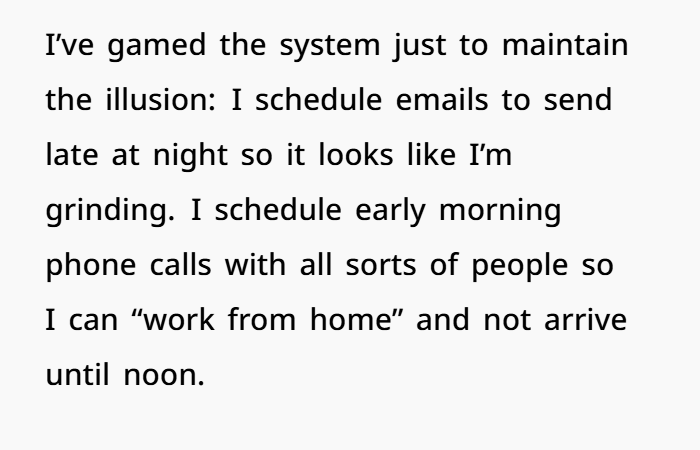
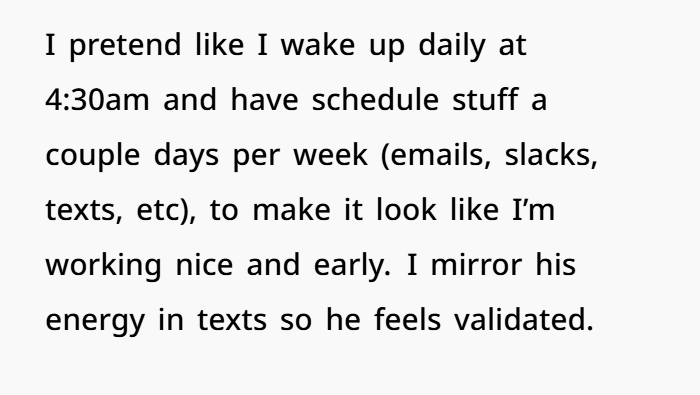

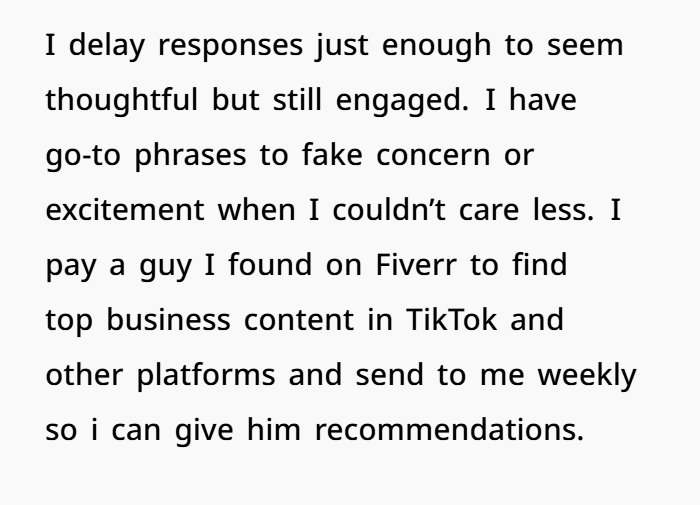
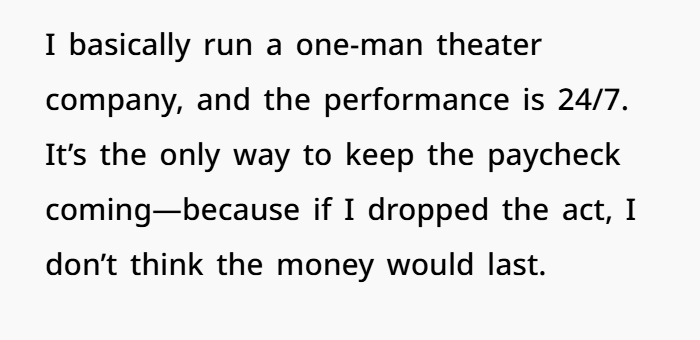
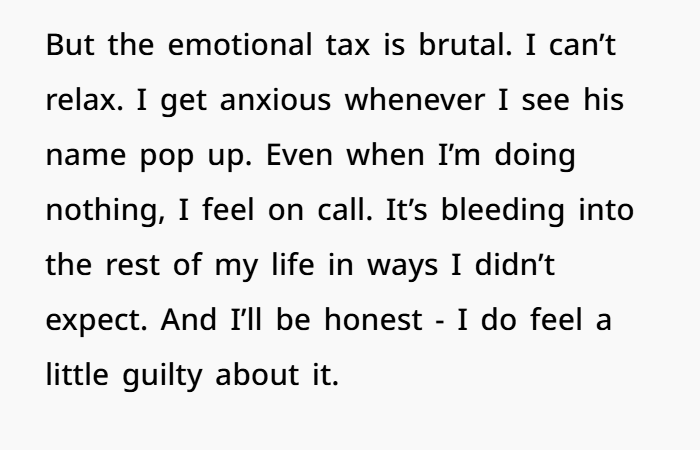
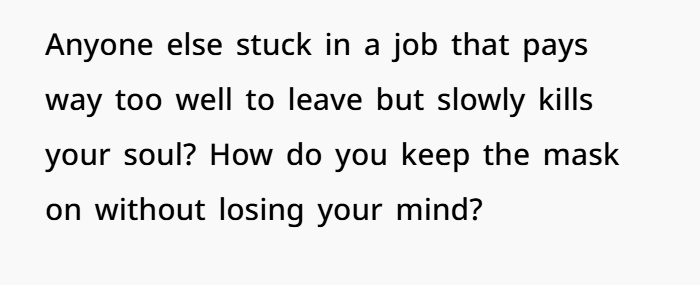

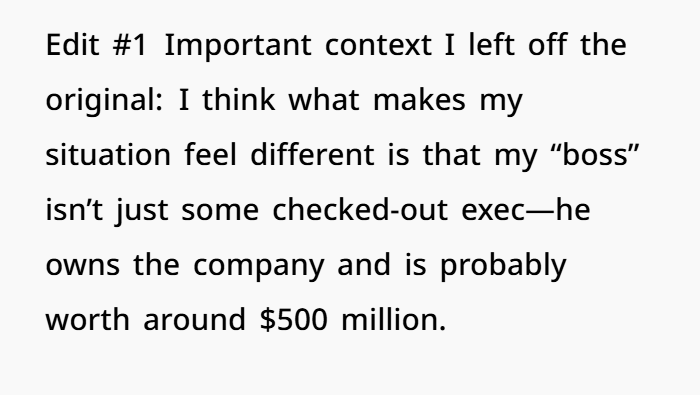
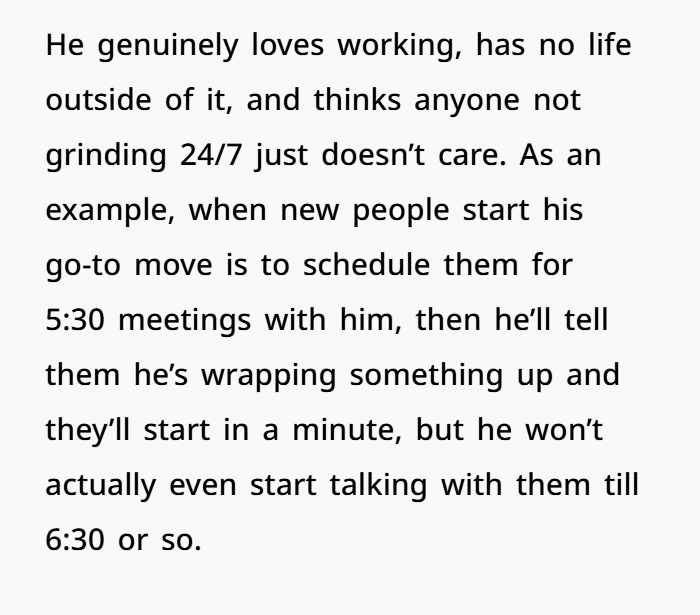
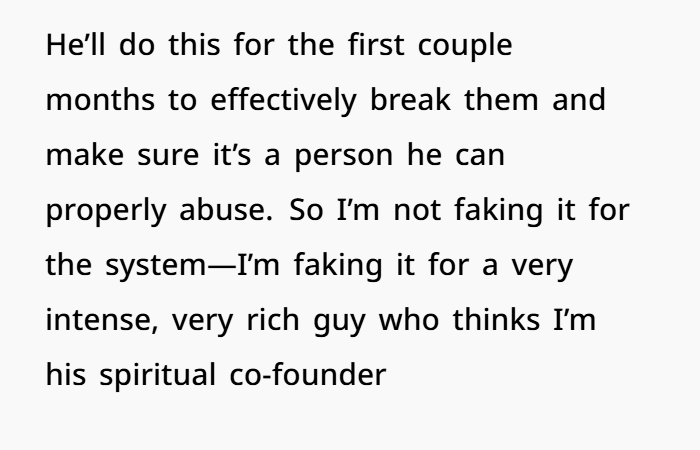
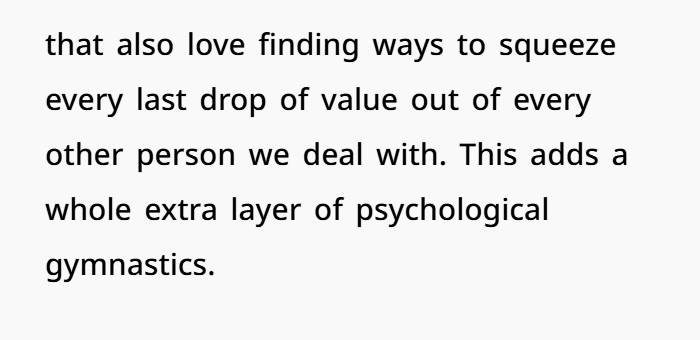
The narrator’s experience highlights a growing issue in today’s corporate workforce: the emotional labor required to meet unrealistic expectations of constant availability and feigned passion. Emotional labor, as first conceptualized by sociologist Arlie Hochschild, refers to managing one’s emotions to fulfill the emotional requirements of a job. In industries driven by high net-worth individuals and entrepreneurial culture, this emotional labor can extend beyond customer interactions and seep deeply into internal corporate hierarchies.
The situation described aligns closely with phenomena like workplace emotional exhaustion, a critical dimension of occupational burnout. According to the World Health Organization, burnout is now recognized as a legitimate workplace syndrome characterized by feelings of energy depletion, mental distance from the job, and reduced professional efficacy. Individuals working under “always-on” cultures—popularized by Silicon Valley and the broader startup ecosystem—are especially vulnerable. Companies may profit from such arrangements, but the hidden cost is often borne by employees’ mental health.
Interestingly, what the narrator experiences also echoes the concept of toxic leadership, where bosses use psychological manipulation techniques like delayed meetings, hypercriticism, and boundary erosion to control and break employees’ spirits (source). The boss’s tactic of scheduling 5:30 p.m. meetings but showing up an hour late isn’t merely inconsiderate—it’s a deliberate power play rooted in establishing dominance and normalizing exploitation.
Moreover, high earners trapped in “golden handcuffs”—the phenomenon where lucrative compensation prevents employees from leaving unfulfilling or toxic roles—often experience a heightened identity crisis. As detailed by Psychology Today, the cognitive dissonance between financial comfort and personal dissatisfaction can cause deep psychological strain, often leading to depression, anxiety disorders, and relationship breakdowns.
In environments where performance theater is rewarded over authentic productivity, employees often adopt surface acting—a form of emotional labor where outward emotions are faked while inner feelings remain unchanged. Research published in the Journal of Occupational Health Psychology suggests that chronic surface acting can lead to emotional dissonance, further exacerbating stress and reducing overall job satisfaction.
Ultimately, while the narrator’s income may be substantial, the emotional tax of sustaining this professional charade is proving to be an unrelenting burden. It’s a stark reminder that while financial freedom is desirable, true work-life balance, mental well-being, and emotional authenticity are just as crucial—and often far more elusive.
Netizens came to the comments to share their 2 cents, and some had no sympathy at all
